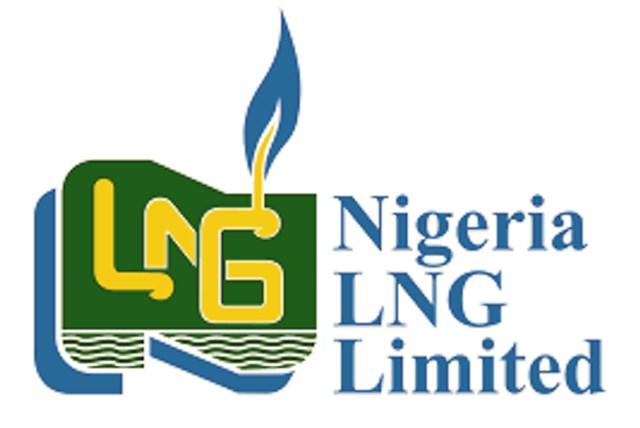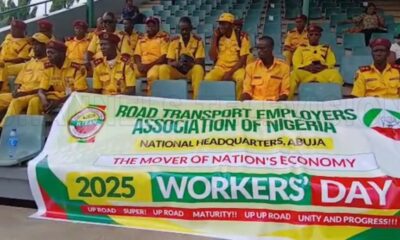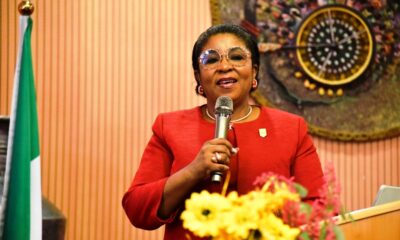Business
IMF tells FG To Stop Electricity Subsidy
The International Monetary Fund (IMF) has called in Nigeria’s Federal Government to remove what it called implicit fuel and electricity subsidies.
This was contained in a recent report published by the IMF, in which it said the subsidies will take a whooping three per cent of the nation’s Gross Domestic Product (GDP) in 2024 as against one per cent in 2023.
In the report, the IMF commended the Federal Government for phasing out “costly and regressive energy subsidies”, among others.
It added that this was “critical to creating fiscal space for development spending and strengthening social protection while maintaining debt sustainability”.
Recall that President Bola Tinubu’s administration removed fuel subsidies during his inauguration on May 29, 2023.
Commenting of the fuel subsidy removal, IMF noted that “adequate compensatory measures for the poor were not scaled up promptly and subsequently paused over corruption concerns. Capping pump prices below cost reintroduced implicit subsidies by end-2023 to help Nigerians cope with high inflation and exchange rate depreciation”.
IMF also acknowledged that the price of electricity had tripled for high-use premium consumers on Band A feeders, 15 per cent of the 12 million customers who account for 40 per cent of electricity usage.
Following Nigerians’ agitation for the reversal of the Band A tariff from N206.80 per kilowatt-hour to N68, IMF said “the tariff adjustment will help reduce expenditure on subsidies by 0.1 per cent of Gross Domestic Product, while continuing to provide relief to the poor, particularly in rural areas”.
It continued that “once the safety net has been scaled up and inflation subsides, the government should tackle implicit fuel and electricity subsidies”.
The organisation also warned that “With pump prices and tariffs below cost-recovery, implicit subsidy costs could increase to 3 per cent of GDP in 2024 from 1 per cent in 2023. These subsidies are costly and poorly targeted, with higher income groups benefiting more than the vulnerable.
“As inflation subsides and support for the vulnerable is ramped up, costly and untargeted fuel and electricity subsidies should be removed, while, e.g., retaining a lifeline tariff”.
IMF projected that the implicit fuel subsidy could gulp as high as N8.4tn in 2024 from N1.85tn in 2023, N4.4tn in 2022, N1.86tn in 2021 and N89bn in 2020.
The electricity subsidy being paid to customers under Band B, C, D, and E was projected to stand at N540bn by the end of 2024.
The Tide’s source reports that the Nigerian National Petroleum Company Limited (NNPCL) and the Minister of State for Petroleum (Oil), Heineken Lokpobiri, have repeatedly debunked claims that the Federal Government was paying fuel subsidies through the back door.
The IMF’s call for the removal of electricity subsidy is coming amid protests from Nigerians who are calling on the Minister of Power, Adebayo Adelabu, to return the Band A tariff to the status quo.
For this purpose, the organised labour has threatened to stage a protest on Monday if Adelabu fails to heed their calls.
Business
TTP Trains Customs Agents, Freight Forwarders On Eto App
In a concerted effort to tackle racketeering and reduce inflated transportation costs in the Nigeria’s seaports, Trucks Transit Parks Ltd. (TTP) has trained Licensed Customs Agents and Freight Forwarders on the use of its Ètò electronic call-up system.
The training was held recently at Customs Processing Centre (CPC) Auditorium, Apapa, Lagos, in collaboration with the Nigeria Customs Service (NCS) and supported by the leadership of the Joint Association of Licensed Customs Agents and Freight Forwarders (JALCAFF), Apapa Command.
Speaking at the event, Comptroller Babatunde Olomu expressed appreciation to TTP for facilitating the training and emphasized the need for customs agents to take personal ownership of the Ètò booking process.
“I want to thank TTP for this impactful training. I encourage all customs agents to begin doing their own bookings directly. By doing so, they can take back power from the unscrupulous elements exploiting their lack of knowledge, selling tickets at highly inflated prices,” Olomu declared.
He noted that empowering agents with hands-on training was key to dismantling racketeering networks that have plagued access to the ports and frustrated efficient logistics processes.
Also speaking, the Chairman, Apapa Chapter of the Association of Nigerian Licensed Customs Agents (ANLCA), Chief Emeka Chukwumalu, said the engagement was critical to the ongoing push to reduce cargo transportation costs and ease business operations at the Apapa Port.
According to a freight forwarder, “The training is basically for us to have awareness of the operations of the Ètò call-up system through TTP. We also want to brainstorm on ways to reduce the high cost of cargo transportation in Apapa Port.
“This training opened our eyes to how simple it is to book tickets ourselves. We now know the right steps to follow and how to avoid falling victim to fraudsters.”
Earlier, Head of Operations at TTP, Mr. Irabor Akonoman, talked on common misconceptions about ticket pricing, reaffirming that the cost of Ètò bookings had remained consistent since its inception.
“The official price remains the same since inception. What people are paying higher amounts for is the manipulation by racketeers”.
Business
NECA Holds MSME Fair To Drive Growth
Towards strengthening small businesses and promoting a more supportive regulatory environment, the Nigeria Employers’ Consultative Association (NECA) says it will hold the 2025 edition of its flagship MSMEs Fair on Tuesday (May 6, 2025).
The event, themed, “Galvanising MSMEs for Economic Growth and Stability”, will take place at NECA House in Lagos.
According to NECA’s Director-General, Mr Adewale Smatt Oyerinde, the fair seeks to provide micro, small, and medium enterprises with essential tools, resources, and strategic networks to thrive in Nigeria’s challenging business climate.
He emphasised the vital role MSMEs play in national development, describing them as the “lifeblood of Nigeria’s economy.”
Oyerinde noted that the fair is designed to offer entrepreneurs practical solutions to navigate economic uncertainties, regulatory hurdles, and business scalability issues.
A major attraction of this year’s event is the keynote address by the CEO of FATE Foundation, Mrs. Adenike Adeyemi, a prominent advocate for MSME development.
She is expected to share transformative insights on innovative strategies for sustaining and growing small businesses in Nigeria.
A unique feature of the fair will be interactive sessions with key regulatory bodies. Entrepreneurs will engage directly with agencies responsible for licensing, compliance, taxation, and business registration.
NECA said these sessions aim to demystify bureaucratic processes and foster a more enabling business environment.
It also said the fair will provide a platform for entrepreneurs to exhibit their products and services, connect with potential investors, and explore new markets.
It added that participants would gain critical knowledge on digital transformation, access to finance, and strategies for sustainable business growth.
·
· NECA stressed that the fair aligns with its broader mission of promoting enterprise development and economic resilience.
·
· “By empowering MSMEs with the right support and information, the organisation aims to stimulate job creation, innovation, and long-term economic stability”, NECA said.
·
· The 2025 MSMEs Fair is expected to attract a wide range of stakeholders, including financiers, tech experts, regulators, and industry leaders, all united in advancing the growth of Nigeria’s MSME sector.
Business
Over 2m Passengers Board Blue Rail Train – Commissioner
The Lagos State Commissioner for Transport, Mr Oluwaseun Osiyemi, says over two million passengers have been transported on the Blue Line Rail since its launch, while state-run buses move an average of 42,000 commuters daily.
Osiyemi, who disclosed this during the Year 2025 Ministerial press briefing held at the Bagauda Kaltho Press Centre, Alausa, on Tuesday, noted that the Lagos State Transport Policy, launched in May 2024, was now in its implementation phase, focusing on inclusivity, safety, affordability, and sustainability.
“On rail development, Phase One of the Blue Line (Marina to Mile 2) has served over two million passengers, with Phase Two (Mile 2 to Okokomaiko) in progress.
“Phase One of the Red Line (Agbado to Oyingbo) is now operational with eight stations and additional rolling stocks procured, while Phase two (Oyingbo to link Blue Line at National Theatre) is underway”, he said.
The Commissioner said in the state-owned bus operations, over 60 million commuters have been served since 2019, with daily ridership exceeding 40,000.
He also said plans were on to deploy new buses with Quality Bus Corridors under construction, adding that the Abule=Egba Bus Terminal had also been commissioned.
“For water transport, 15 locally-built Omibus Ferries have been launched and are in operation, with the Ijegun Egba Terminal now open.
“The OMI EKO project, in partnership with the French Development Agency (AFD), will deliver 25 terminals and 78 electric ferries.
“Over 280,000 passengers have used ferry services in the past year, and 12 boats have been upgraded to meet safety standards”, he said.
On road infrastructure and traffic management, the Commissioner said 49 junction improvement projects had been completed, including ongoing ones at Ikorodu, Iju, as well as Allen-Opebi-Toyin axis.
He added that solar-powered Traffic Signal Lights, road markings covering 67.9km, new medians, laybys, and 3,941 parking lots had also been provided.
Additionally, Osiyemi announced that the deployed Automatic Number Plate Recognition cameras had detected over 470,000 traffic violations and that the Vehicle Inspection Service issued over one million roadworthiness certificates.
He also said that the Lagos State Drivers’ Institute trained more than 32,000 drivers in the past 13 months.
The event marked the second anniversary of Governor Babajide Sanwo-Olu’s second term, showcasing major strides in the transport sector under the THEMES+ agenda.
Nkpemenyie Mcdominic, Lagos
-
Business4 days ago
NECA Holds MSME Fair To Drive Growth
-

 News3 days ago
News3 days agoNDDC Seeks UN’s Support To Accelerate Niger Delta Development
-

 Rivers4 days ago
Rivers4 days agoNLNG Initiates New Empowerment Scheme For Host Communities
-

 Editorial4 days ago
Editorial4 days agoMay Day: Let Nigerian Workers Breathe
-
City Crime4 days ago
Europa League Will Not Save Our Season – Man Utd
-

 News3 days ago
News3 days agoWalson-Jack Salutes Civil Servants’ Dedication On Workers’ Day
-
Business4 days ago
TTP Trains Customs Agents, Freight Forwarders On Eto App
-

 News3 days ago
News3 days ago2025 UTME: JAMB Disowns Site Requesting Payment From Candidates

